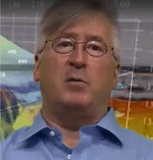
Exclusive interview with accomplished energy analyst and advisor to the energy and utility industries David Rewcastle. He is cited regularly regarding the energy, gas utility, & unconventional energy sectors in Bloomberg News, WSJ, AP, Reuters, Forbes, Investor’s Business Daily, CNN, Barron’s, Houston Chronicle, USA Today, and several regional papers. David is a member of the New York City Energy Forum, NYSSA, and the National Association of Petroleum Investment Analysts. He is a FINRA Series 7, 63, 86, & 87 license holder.
David Rewcastle is currently a Senior analyst at E3 Research Associates, a third-party research and analytics company, and an instructor of economics at the University of New Haven. He is a former professor at the New York University School of Professional Studies, where he teaches courses in valuation and finance. His experience includes being a senior research analyst at RHK/Source Capital Group, an analyst at Divine Capital Markets and Capstone Investments, as well as September Group Research Partners. David is a former sovereign risk & rating associate analyst at Fitch Ratings/Thomson Bankwatch and a field analyst with Schlumberger’s Seismic Exploration Group.
David Rewcastle has stated recently that the U.S. energy sector is in a “teachable moment” in history. In this article, we asked David Rewcastle about his area of expertise.
How did your career in energy analysis start?
I went to New York University and graduated with a Master of Arts & Business Administration – Finance and Petroleum Economics. In the late 1980s, I went to work for Schlumberger as an analyst in the Western Geco, Seismic Division in Alberta, Canada. · I was also a member of the Global Positioning Satellite signals project. The pioneering project replaced optical surveying with GPS units; instrumental in ushering in today’s widespread use of GPS technology. At Schlumberger, I was involved in maintaining databases, conceptual and quantitative interpretation of seismic data, as well as planning and analysis to formulate contract bids for oil and gas seismic exploration projects.
In 2003, I was hired as a Market and Securities Associate Analyst in the Energy sector by September Group Partners Research, in New York, NY. I was a Buy-Side Equity Analyst covering the energy industry & market trends. Early on in my role, I successfully identified several actionable short-term and long-term market catalysts while at September Group. This was a great introduction to analyzing market trends and the excitement of the NYSE.

Were you an analyst for any industries outside of energy?
I spent time as a political risk consultant with Venture in NYC. Venture provided accurate and predictive geopolitical risk and economic analysis for traders, hedge funds, and investors. Among the earlier recognized energy industry fundamentals were breaking out of their previous 20-year supply/demand balance and price ranges.
What was your first significant recognition as an analyst?
In 2004 I joined the Argus Research Corporation in New York. As an Equity Research Analyst, I was covering a portfolio of 28 stocks in the energy services, gas utility, and energy-related sectors. I also provided Portfolio Managers at Argus Investors’ Council with Long/Short and long-term investment recommendations for the energy, gas utility, and water utility sectors.
My first recognition came 3 years later in 2007 when Starmine/Forbes’s Stockpicker of the year in the gas utility industry, as well as the #4 analyst for oilfield services. During this time, I started as the Market Risk Analyst for Van Kampen’s Unit Trusts, ETFs, Bankruptcy Watch Lists, and Foreign Securities Watchlists in numerous market sectors and geographical regions for Argus. My area of focus was volatility & fundamentals-based analysis, & my recommendations as stock price volatility rose to levels concerning client brokers/dealers. As a result of my exceptional performance, I was awarded the Wall Street Journal’s stockpicker of the year, and the winner of the 2008 “Best on the Street” Award for Oilfield Services.

When did you start working in Connecticut?
In 2011, I started working with RHK/Source Capital Group & Compass Point Partners in Westport, CT. This was my first as an Energy related equities & fixed-income products, senior analyst. I help analyze stocks for the Source Capital Group fund as a sell-side publishing & desk analyst focusing on energy & related equities, fixed income, and M&A opportunities. I was also a Stock picker for Compass Point Partners hedge fund: comprising energy, technology stocks, and bonds for the fund.
My move to Connecticut was a great opportunity to take the next step in a career that I loved.
Tell us about your work with the University of New Haven.
I started teaching a Micro/Macro Economics course Energy in America in 2020. The course covers the energy and utility sector in the U.S. economy and long/short-term changes that can affect additional sectors. This is an excellent opportunity for students to engage in forward-thinking work. We discuss the operation and allocation of scarce resources in markets. We will use analytical tools to examine the behavior of individuals and firms to develop a framework that can determine the efficiency of different market outcomes through the operation of price mechanisms. This course will provide an overview of the history and institutional structure of the EU and expose and evaluate the economic principles, economic foundations, and current policies of European economic integration. The field of macro and micro-economic theory is the foundation for analysis, working principles, tools, and approaches to European integration.

What is your current area of focus?
Since 2018, I have been a senior analyst with an independent 3rd party research firm focused on equities, energy, and economics. My activities include consulting research and analysis for publicly listed and privately owned companies. In the past few years, I have added the biotechnology sector to my area of analysis.
What do you contribute to your productivity throughout your career?
I contribute to my productivity by focusing on one thing at a time, perfecting that one thing, then moving on to the next task. Only 2% of people can successfully multitask. Unfortunately, I am not in that 2% of the population. When I try to multitask it results in lower productivity, distractions, and procrastination in my important tasks. Focus on the one thing you are currently working on when you work, complete it then move on to the next. You can close all unnecessary windows and social media notifications. This will make the task easier and more efficient.
This strategy I was able to master this later in life. I made time for myself to go back to school and focus on the things that I was passionate about.
What’s next for David Rewcastle?

I am looking forward to publishing my thoughts and analysis on my personal website, podcast, and YouTube channel. I am truly excited to continue my addition of the BioTech sector to my area of expertise and look forward to discovering some truly innovative companies.
I am happy to be in Darien and would like to continue to help the average investor, my students, and my company reach their best potential.
To learn more about David Rewcastle, please visit his website.
